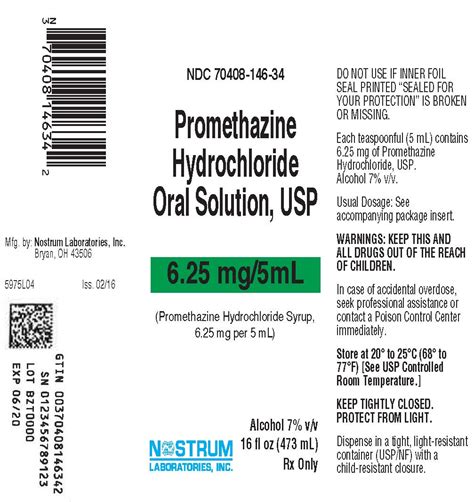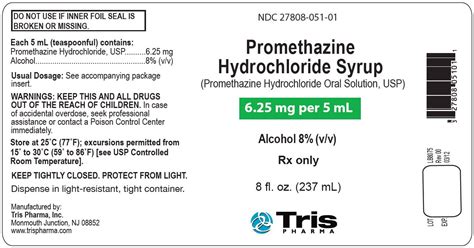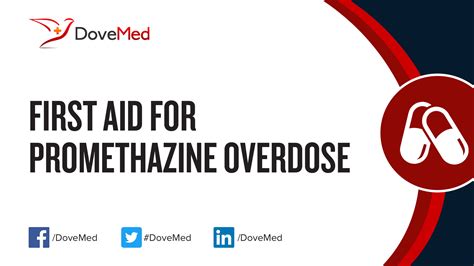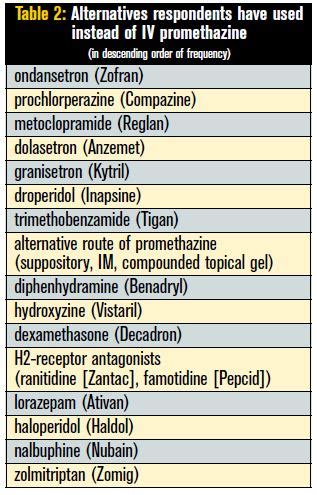Intro
Discover Promethazine uses, effects, and side effects. Learn about its applications in cough syrup, allergy treatment, and sedation, as well as potential interactions and warnings.
The world of medicine is filled with a wide range of drugs, each designed to treat specific health conditions. Among these, promethazine stands out as a versatile medication with various applications. Understanding promethazine uses and effects is crucial for both medical professionals and patients, as it can significantly impact treatment outcomes and patient safety. In this article, we will delve into the details of promethazine, exploring its uses, mechanisms of action, potential side effects, and more, to provide a comprehensive overview of this important medication.
Promethazine is a first-generation antihistamine that has been in use for several decades. It belongs to the phenothiazine class of drugs, which are known for their antihistaminic, antiemetic, and sedative properties. The medication works by blocking the action of histamine, a chemical released by the body's immune system during allergic reactions. By preventing histamine from binding to its receptors, promethazine can reduce the symptoms associated with allergies, such as itching, sneezing, and runny nose.
Promethazine Uses

Promethazine is used for a variety of purposes, including the treatment of allergic reactions, nausea and vomiting, and as a sedative. Its antihistaminic properties make it effective in relieving symptoms of allergies, such as hay fever, itching, and hives. Additionally, promethazine is used to prevent and treat nausea and vomiting, which can be caused by motion sickness, surgery, or other medical conditions. Its sedative effects also make it useful for inducing sleep and relieving anxiety in certain situations.
Promethazine Mechanism of Action
The mechanism of action of promethazine involves the blockade of histamine receptors in the body. Histamine is a chemical mediator that plays a key role in allergic reactions, and by blocking its action, promethazine can reduce the symptoms associated with these reactions. The medication also has anticholinergic effects, which can help to reduce nausea and vomiting by slowing down the movement of the stomach and intestines.Promethazine Side Effects

Like all medications, promethazine can cause side effects in some individuals. Common side effects of promethazine include drowsiness, dizziness, and dry mouth. The medication can also cause more serious side effects, such as confusion, hallucinations, and increased heart rate, although these are less common. In rare cases, promethazine can cause severe side effects, such as anaphylaxis, which is a life-threatening allergic reaction that requires immediate medical attention.
Promethazine Interactions
Promethazine can interact with other medications, which can increase the risk of side effects or reduce the effectiveness of the medication. For example, promethazine can interact with sedatives, tranquilizers, and other central nervous system depressants, which can increase the risk of drowsiness and other side effects. The medication can also interact with certain antibiotics, such as erythromycin, which can increase the risk of QT prolongation, a condition that can cause abnormal heart rhythms.Promethazine Dosage

The dosage of promethazine varies depending on the condition being treated and the age and weight of the patient. For allergic reactions, the typical dose of promethazine is 12.5 to 25 milligrams, taken orally every 4 to 6 hours as needed. For nausea and vomiting, the typical dose is 12.5 to 25 milligrams, taken orally every 4 to 6 hours as needed. For sedation, the typical dose is 25 to 50 milligrams, taken orally 30 minutes to 1 hour before bedtime.
Promethazine Precautions
Promethazine can cause drowsiness and impaired cognitive function, which can increase the risk of accidents and injuries. Patients taking promethazine should avoid operating heavy machinery, driving, or engaging in other activities that require alertness and attention. The medication can also cause dry mouth, which can increase the risk of tooth decay and other oral health problems. Patients taking promethazine should practice good oral hygiene, including brushing and flossing regularly, to reduce the risk of these problems.Promethazine Overdose

Promethazine overdose can occur if the medication is taken in excess of the recommended dose. Symptoms of promethazine overdose include drowsiness, confusion, hallucinations, and increased heart rate. In severe cases, promethazine overdose can cause seizures, coma, and even death. If an overdose is suspected, medical attention should be sought immediately.
Promethazine Withdrawal
Promethazine can cause physical dependence and withdrawal symptoms if it is taken for an extended period. Withdrawal symptoms can include nausea, vomiting, diarrhea, and abdominal cramps. To minimize the risk of withdrawal symptoms, patients should gradually taper off the medication under the guidance of a healthcare professional.Promethazine Alternatives

There are several alternatives to promethazine, including other antihistamines, such as diphenhydramine and loratadine. These medications can provide similar relief from allergic symptoms, but they may have different side effect profiles and interactions. Patients should consult with a healthcare professional to determine the best alternative for their specific needs.
Promethazine and Pregnancy
Promethazine can be used during pregnancy, but it should be used with caution. The medication can cause drowsiness and impaired cognitive function, which can increase the risk of accidents and injuries. Additionally, promethazine can pass into breast milk, which can cause drowsiness and other side effects in nursing infants. Pregnant or breastfeeding women should consult with a healthcare professional before taking promethazine.Promethazine and Children

Promethazine can be used in children, but it should be used with caution. The medication can cause drowsiness and impaired cognitive function, which can increase the risk of accidents and injuries. Additionally, promethazine can cause respiratory depression, which can be life-threatening in young children. Children should be closely monitored while taking promethazine, and the dosage should be adjusted according to their age and weight.
Promethazine and Elderly
Promethazine can be used in elderly patients, but it should be used with caution. The medication can cause drowsiness and impaired cognitive function, which can increase the risk of falls and other accidents. Additionally, promethazine can cause urinary retention, which can increase the risk of urinary tract infections and other complications. Elderly patients should be closely monitored while taking promethazine, and the dosage should be adjusted according to their age and health status.Promethazine and Other Medications

Promethazine can interact with other medications, which can increase the risk of side effects or reduce the effectiveness of the medication. Patients should inform their healthcare professional about all medications they are taking, including prescription and over-the-counter medications, vitamins, and supplements. This can help to minimize the risk of interactions and ensure safe and effective treatment.
Promethazine and Alcohol
Promethazine can interact with alcohol, which can increase the risk of drowsiness and impaired cognitive function. Patients taking promethazine should avoid consuming alcohol, as it can increase the risk of accidents and injuries. Additionally, alcohol can increase the risk of liver damage and other complications, especially when combined with promethazine.What is promethazine used for?
+Promethazine is used to treat allergic reactions, nausea and vomiting, and as a sedative. It is also used to prevent and treat motion sickness, and to induce sleep and relieve anxiety in certain situations.
What are the common side effects of promethazine?
+Common side effects of promethazine include drowsiness, dizziness, and dry mouth. The medication can also cause more serious side effects, such as confusion, hallucinations, and increased heart rate, although these are less common.
Can promethazine be used during pregnancy?
+Promethazine can be used during pregnancy, but it should be used with caution. The medication can cause drowsiness and impaired cognitive function, which can increase the risk of accidents and injuries. Pregnant or breastfeeding women should consult with a healthcare professional before taking promethazine.
Can promethazine interact with other medications?
+Yes, promethazine can interact with other medications, which can increase the risk of side effects or reduce the effectiveness of the medication. Patients should inform their healthcare professional about all medications they are taking, including prescription and over-the-counter medications, vitamins, and supplements.
Can promethazine be used in children?
+Promethazine can be used in children, but it should be used with caution. The medication can cause drowsiness and impaired cognitive function, which can increase the risk of accidents and injuries. Children should be closely monitored while taking promethazine, and the dosage should be adjusted according to their age and weight.
In summary, promethazine is a versatile medication with various applications, including the treatment of allergic reactions, nausea and vomiting, and as a sedative. While it can be effective in relieving symptoms, it can also cause side effects and interact with other medications. Patients should be aware of the potential risks and benefits of promethazine and follow the guidance of a healthcare professional to ensure safe and effective treatment. We encourage readers to share their experiences with promethazine and ask any questions they may have about this medication. By working together, we can promote better understanding and use of promethazine and other medications, ultimately improving patient outcomes and quality of life.
